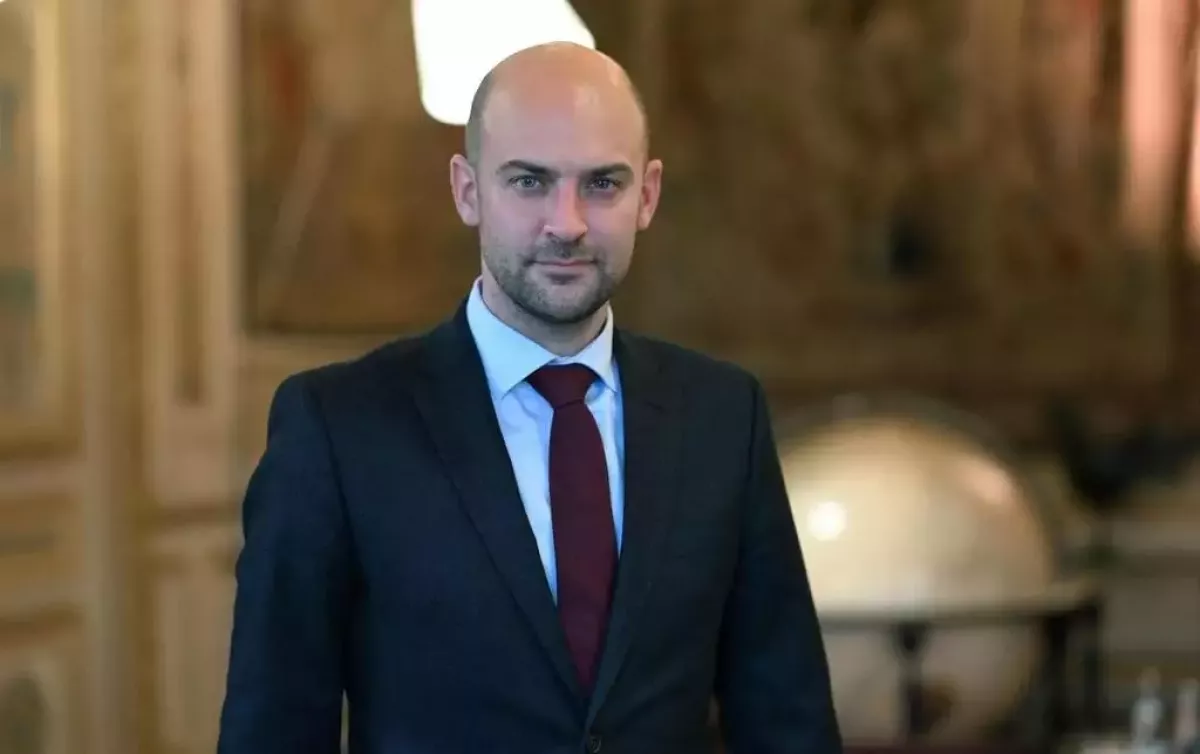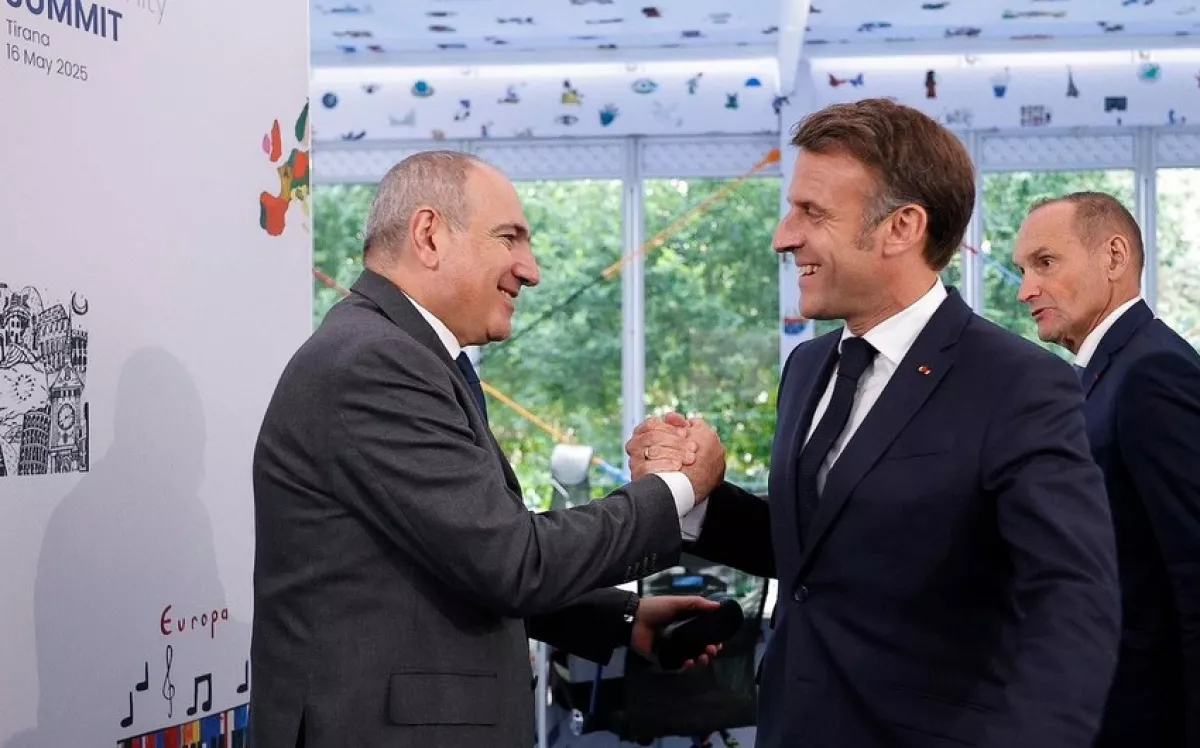A “peacemaker” without a mandate The Franco-Armenian theatre of the absurd
It is well known that French Foreign Minister Jean-Noël Barrot is a protégé of President Emmanuel Macron. Although he was officially appointed as Minister for European Affairs and International Relations as part of a broader government reshuffle, in reality, his appointment was a political decision made personally by the French leader.
Moreover, Barrot is a member of Renaissance—the party founded by President Macron—and represents the technocratic wing of the ruling coalition, with a focus on the digital economy, international cooperation, and a pro-European agenda. Thus, it can be confidently stated that his promotion is part of Macron’s strategy to strengthen his influence over France’s foreign policy.

We bring this up because Monsieur Barrot, while in Yerevan, saw fit to make yet another statement that can only be described as laughable.
“We have supported the Armenian authorities’ efforts in reaching a peace agreement with Azerbaijan,” declared the French foreign minister, responding to a blatantly provocative question about “what steps France is taking to prevent escalation and potential aggression from Azerbaijan.”
It is clear that we are once again facing a ridiculous jab in our direction — and one that is absurd for several reasons. Firstly, for more than a quarter of a century, Armenia occupied 20% of Azerbaijan’s territory, in defiance of international law and four UN Security Council resolutions — not the other way around.
Secondly, it is inherently comical to accuse Azerbaijan of something that does not exist in reality, but merely in the imagination of official Paris. By the same logic, any country could accuse France of a “potential aggression against the planet Mars.” Yet we have long grown accustomed to the fact that official Paris prefers to act not on the basis of facts, but on myths — most often of Armenian origin — while hastily taking credit for things it had no part in whatsoever.
“We welcomed the agreement on the text of the document and call on Azerbaijan to sign it,” Barrot declared — a thoroughly abstract statement, seemingly addressed to no one in particular. This is especially puzzling given that just recently, Armenian Foreign Minister Ararat Mirzoyan stated that Armenia has a clear vision: relations with Azerbaijan and Türkiye must be normalised on the basis of mutual respect for each other’s sovereignty and territorial integrity. “We know that peace does not come easily; it is a long process, driven by bold diplomacy, mutual understanding, and the building of trust,” he said.
Additionally, Armenian Prime Minister Nikol Pashinyan also made a statement on May 26, announcing that he would personally initiate amendments to Armenia’s Constitution if the Constitutional Court does not approve the peace agreement with Azerbaijan.
Essentially, this was Pashinyan’s own admission that the reason for the delay in signing the peace treaty lies in Yerevan’s endless political manoeuvring and stalling tactics.
Azerbaijan, which initiated the peace process immediately after restoring its sovereignty and territorial integrity, has always clearly identified the main obstacles to signing a comprehensive peace agreement with Armenia. Chief among them is the need to amend Armenia’s Constitution, whose preamble contains territorial claims against both Azerbaijan and Türkiye. And only now—after a prolonged period during which the Armenian side wasted time attempting to evade the legitimate demands of official Baku—have we finally heard something from Pashinyan resembling a willingness to take constructive steps. But let us emphasise: so far, these are only words.

In any case, the French Foreign Minister ought to have directed his concerns not at Azerbaijan, but at Armenia. However, as we have witnessed time and again, Macron and his appointees are incapable of being objective when it comes to Armenian-Azerbaijani reconciliation. And Monsieur Barrot is a striking example of this bias.
“I am very concerned about rising tensions along the (Armenian-Azerbaijani) border. I hope the European mission deployed on the ground can be expanded in order to monitor and help de-escalate these tensions. A peace agreement must now be signed, and arbitrarily detained individuals and prisoners must be released,” he stated in mid-April ahead of the EU Foreign Affairs Council meeting in Luxembourg.
Then, as now, the same picture emerges — official Paris is making clumsy attempts to claim credit for developments that, in reality, are nothing but a reflection of its failures.
Macron’s France went to great lengths to obstruct the triumph of international law, the restoration of Azerbaijan’s sovereignty, and its territorial integrity. And when all those efforts ended in failure, it began to meddle in issues that have nothing to do with France in the first place.
The latest speech by the French Foreign Minister is cut from the same “theatre of the absurd” — a performance no one in Baku has any intention of sitting through. The only thing we can offer Monsieur Barrot, and through him the entire Élysée Palace, is a bit of advice: refrain from so openly casting yourselves in an unflattering light while trying to obscure the obvious.
This is not only about official Paris attempting to portray itself as a party genuinely interested in a just peace between Baku and Yerevan, but also about the symbolic slap in the face — one that has been widely discussed across the globe, even if the Élysée continues to deny it ever happened.








